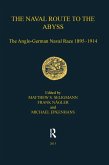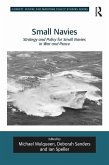Following the end of the First World War the Mediterranean Fleet found itself heavily involved in the Eastern Mediterranean, the Sea of Marmora, the Black Sea and to a lesser extent, the Adriatic. Naval commanders were faced with complex problems in a situation of neither war nor peace. The collapse of the Ottoman, Russian and Habsburg empires created a vacuum of power in which different factions struggled for control or influence. In the Black Sea this involved the Royal Navy in intervention in 1919 and 1920 on the side of those Russians fighting the Bolsheviks. By 1920 the Allies were also faced with the challenge of the Turkish nationalists, culminating in the Chanak crisis of 1922. The 1923 Treaty of Lausanne enabled the Mediterranean Fleet finally to return to a peacetime routine, although there was renewed threat of war over Mosul in 1925-1926. These events are the subject of the majority of the documents contained in this volume. Those that comprise the final section of the book show the Mediterranean Fleet back to preparation for a major war, applying the lessons of World War One and studying how to make use of new weapons, aircraft carriers and aircraft.
Dieser Download kann aus rechtlichen Gründen nur mit Rechnungsadresse in A, B, BG, CY, CZ, D, DK, EW, E, FIN, F, GR, HR, H, IRL, I, LT, L, LR, M, NL, PL, P, R, S, SLO, SK ausgeliefert werden.









